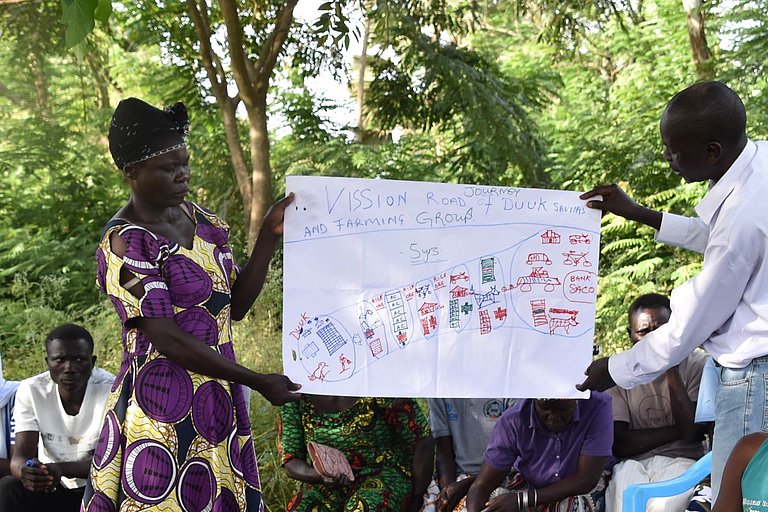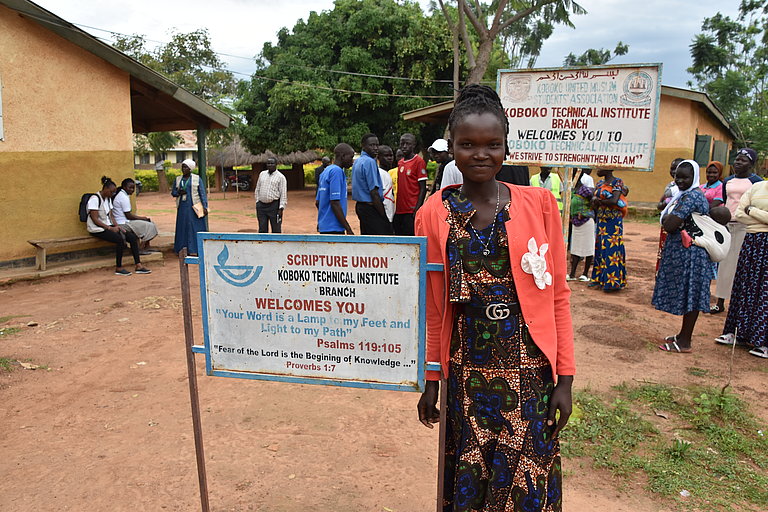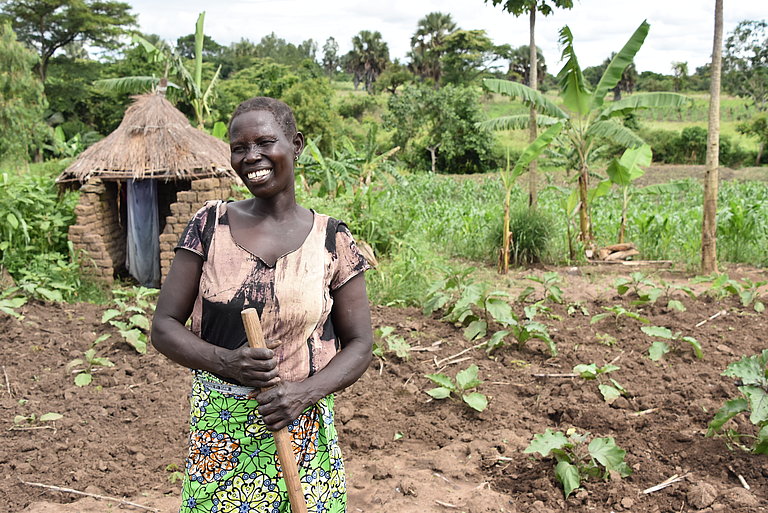Uganda is home to approximately 1,582,892 refugees and asylum seekers from South Sudan, Democratic republic of Congo (DRC) and some from Kenya and Burundi. Our project with our local partner RICE WN, is being implemented in Palorinya and Lobule refugee settlements in the West Nile which host approximately 128,520 refugees and 5,910 refugees respectively.
Food insecurity and malnutrition are persistent realities to families within this region; and this is attributed to low agriculture production caused by poor agronomic practices, limited access to agro-inputs, land for cultivation, low incomes, inadequate dietary intake and lack of knowledge on nutrition; poor land management practices which degrade natural resources therefore contributing to climate change and conflicts for between refugees and locals who rely on these natural resources. Most refugees and locals live in extreme poverty. Whereas agriculture is precarious, non-farming jobs are few especially for refugees. As part of our project, we are working with our local partner organization, RICE WN, to help empower refugees, asylum seekers and the locals to improve the food, nutrition and income security as well as climate resilience.
Food security and Climate resilience

Refugees and locals are trained on improved sustainable agricultural practices, natural resource management, food security and nutrition, cooking demonstration and establishment of nutrition sensitive kitchen gardens which enables them manage malnutrition cases in their communities. During cooking demonstrations, various nutrition practices are demonstrated to community members who appreciate and adapt these practices including establishing own kitchen gardens to meet daily household dietary and food security needs; additional demonstration gardens are established to boost household income security.
Women also heavily depend on the environment for wood for fuel, medicinal purposes, and materials for income generation and hence are faced with greater vulnerability due to lack of alternative choices for their survival. Through using locally available materials, households are able to make energy saving stoves, and also engage in briquette making for home use helping them to address the ever-increasing demand for energy but also boosting their incomes. Through community radio dialogues and trees for land restoration campaigns, communities are sensitized about climate change effects and how they can access and use renewable energy.
Improving livelihoods through youth and women empowerment

Women and girls are at a disadvantage and experience inequality in terms of control over and ownership of businesses and productive resources such as land, finances and other household resources. As part of our project, we are working with our partner RICE WN to equip youth especially out of school adolescent boys and girls with various professional vocational skills which will create employment and income generating opportunities. Youth and women will also be sensitized about gender and sexual reproductive health rights with which they can seek advice in case of any challenges.
Through the gender action learning systems approach, women economic engagement is enhanced through direct participation, capacity building, improved agricultural production and market engagement.
Projectinfo
| Project | Strengthening Resilience and Improving Livelihoods |
|---|---|
| Place/Region | Lobule and Palorinya refugee settlement, Koboko and Obongi districts. |
| Partner | Rural Initiative for Community Empowerment West Nile (RICE West Nile) |
| Target group | Refugees and their host communities, a total of 9760 beneficiaries. |
| Activities |
|
| Duration | January 2023 – December 2025 |
| Budget | 200.000 EUR |
| Sponsor | BMZ SSF |
